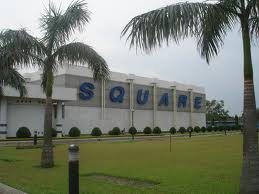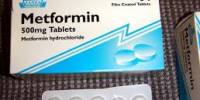CHAPTER ONE
History Of The Organization:
Square today symbolizes a name – a state of mind. But its journey to the growth and prosperity has been no bed of roses. From the inception in 1958, it has today burgeoned into one of the top line conglomerates in Bangladesh. Square Pharmaceuticals Ltd., the flagship company, is holding the strong leadership position in the pharmaceutical industry of Bangladesh since 1985 and is now on its way to becoming a high performance global player.
Square Pharmaceuticals Limited is the largest pharmaceutical company in Bangladesh and it has been continuously in the 1st position among all national and multinational companies since 1985. It was established in 1958 and converted into a public limited company in 1991. The sales turnover of SPL was more than Taka 5 Billion (US$ 90 million) with about 15% market share (April 2003 – March 2004) having a growth rate of about 16%.
1958:
Debut of Square Pharmaceuticals Limited as a partnership firm.
1964:
Converted into a Private Limited Company.
1974:
Technical Collaboration with Janssen Pharmaceutica, Belgium, a subsidiary of Johnson and Johnson International, USA.
1982:
Licensing Agreement signed with F. Hoffmann-La Roche Ltd., Switzerland.
1985:
Achieved first position in the Pharmaceutical Market of Bangladesh among all national and multinational companies.
1987:
Pioneer in pharmaceutical export from Bangladesh.
1991:
Converted in to a Public Limited Company
1994:
Initial Public Offering of Square Pharmaceutical Shares.
1995:
Chemical Division of Square Pharmaceuticals Ltd. starts production of pharmaceutical bulk products (API).
1997:
Won the National Export trophy for exporting pharmaceuticals.
1998:
Agro-chemicals & Veterinary Products Division of Square Pharmaceuticals Limited starts its operation.
2001:
US FDA/UK MCA standard new Pharmaceutical factory goes into operation built under the supervision of Bovis Lend Lease, UK.
2004:
Signing of agreement with ROVIPHARM, Vietnam to manufacture and market SQUARE products under license in Vietnam.
Secured the top position for the best published accounts and report for 2003 in the manufacturing category for transparency and excellence in corporate reporting.
2005
New State-of- the-Art Square Cephlosporins Ltd. goes into operation; built under the supervision of TELSTAR S.A. of Spain as per US FDA/ UK MHRA requirements.
Looking beyond the organization:
Square Pharmaceuticals Limited has extended its range of services towards the highway of global market. She pioneered exports of medicines from Bangladesh in 1987 and has been exporting antibiotics and other pharmaceutical products. This extension in business and services has manifested the credibility of Square Pharmaceuticals Limited.
It strives for:
Square strive, above all, for top quality health care products at the least cost reaching the lowest rungs of the economic class of people in the country.
Owe to shareholders and strive for protection of their capital as well as ensure highest return and growth of their assets.
Strive for best compensation to all the employees who constitute the back-bone of the management and operational strength of the Company through a pay-package composing salary/wages, allowances, bonus, profit participation, leave salary and superannuation & retirement benefits.
Strive for best co-operation of the creditors & debtors the banks & financial institutions who provide financial support when the company needs them, the suppliers of raw materials & suppliers who offer them at the best prices, the providers of utilities-power, gas & water etc. and the customers who buy their products & services by redeeming their claim in time by making prompt payment and by distributing proper product on due dates.
Strive for fulfillment of responsibility to the Government through payment of entire range of due taxes, duties, and claim to various public agencies.
Strive, as responsibilities citizen, for a social order devoid of malpractices, anti-environmental behaviors, unethical and corruptive dealings.
Strive for practicing good governance in every sphere of activities covering inter alias not being limited to, disclosure & reporting to shareholders holding AGM in time, distribution of dividends and other benefits to shareholders, reporting/dissemination of price sensitive information, acquisition of share by insiders, recruitment & promotion of staff, procurement & supplies, sale of assets etc. all that directly and indirectly affect the interest of concerned groups – the shareholders, the creditors, suppliers, employees, government and the public in general
Objective Of The Organization:
Vision
We view business as a means to the material and social wellbeing of the investors, employees and the society at large, leading to accretion of wealth through financial and moral gains as a part of the process of the human civilization.
Mission
Our Mission is to produce and provide quality & innovative healthcare relief for people, maintain stringently ethical standard in business operation also ensuring benefit to the shareholders, stakeholders and the society at large.
Objective
Our objectives are to conduct transparent business operation based on market mechanism within the legal & social frame work with aims to attain the mission reflected by our vision.
Functions Of The Organization:
Ensure strict compliance with WHO GMP standards and local regulatory norms in every phase of sourcing & procuring quality materials, manufacturing, quality assurance and delivery of medicines.
Ensure all activities through documented Quality Management System (QMS) complying International Standard requirements of ISO 9001 through continuously developing Human Resources by regular training and participation.
Square is committed to undertake appropriate review, evaluation and performance measurement of processes, business activities and Quality Management System for continual improvement to ensure highest standard, customer satisfaction, developing human resources and company’s growth.
Existing Program Of The Organization:
Exports pharmaceutical finished products
Offers quality products at competitive price
Offers more than 250 off-patent and on-patent molecules
Offers facilities for contract manufacturing
Provides assistance in product promotion and training in overseas markets
Present markets
Square Pharmaceutical is already supplying products to the following markets:
Asia: Afghanistan, Bhutan, Cambodia, Macau, Malaysia, Myanmar, Nepal, Papua New Guinea, Sri Lanka, Tajikistan, Vietnam, Yemen
Africa: Gambia, Ghana, Kenya, Libya, Mauritius, Niger, Somalia, Sudan, Tanzania
South America : Belize, Costa Rica, Guatemala
Square pharmaceuticals is also supplying to the UK further to the approval of its general plant by the MHRA.
Markets under exploration
Asia: Hong Kong, Iran, Laos, Maldives, Philippines, Qatar, Saudi Arabia, Thailand, UAE
Africa: Algeria, Chad, Comoros Island, Ethiopia, Malawi, Mozambique, Nigeria, Rwanda, Sierra Leone, South Africa
Europe: Germany, Kosovo, Romania, Russia, Ukraine
South America: Brazil, Colombia, El Salvador
Future Program Of The Organization
Strengthen its position in the present markets.
Work is in progress to enter into regulated markets in Europe and United States.
Develop new products in competitive price.
Use local resources for proper utilization.
CHAPTER TWO
Statement Of The Problem:
The main focus of this report is on the strategic human resources management practices in the private sector organizations in Bangladesh. It also pays attention to the potential and existing employees of the organization. The main purpose of this report is to be familiar with the various dimensions of strategic human resource activities & practices in the organization.
Rationale Of The Study:
This report is aimed at the human resource practice in Bangladesh. It is prepared on the basis of self effort and the data collected from different sources. This report strictly followed the class lecture and valuable guidelines of course teacher. Obviously this report will enhance the level of knowing of us about the Human Resources practice in the organization and will help us to apply in practical. It will also help to develop the efficiency of the student of human resources.
Objective Of The Study:
The objectives of this report can be subdivided into two parts. These are:
Broad objectives
To enlighten the experience gathered during the preparation of the report.
To illustrate the activities of the host organization.
Specific objectives
To understand the Strategic human resource management practice in the private sector organization in Bangladesh.
To identify the methods of recruitment, career planning and development, performance appraisal, compensation package, rewards and benefits and other corporate strategy relating to human resource management activities.
To gather a deep knowledge of the activities of Human Resources Management.
To evaluate the effectiveness and problems of human resource practice in private organization.
Data Collection:
The following sources have been used for the purpose of data collection as per our requirement.
Primary Sources:
Observation: Observing the actual practice of Human Resources of the company.
Survey: Interviewing officials and executives involved in this organization. Face to face Conversation with respective officers of the organization.
Secondary Sources:
Official records of Square Pharmaceuticals Ltd.
Relevant file study as provided by the officers concerned
Annual report
Working Papers
Office Files
Selected Books
Printed Forms
Published & Unpublished Document.
Data Analysis:
All the data is collected through secondary sources. Data has been analyzed on the first hand collection. So in this report we do not need to analyze data.
Data Presentation:
We have presented the data through pie chart, which shows the corresponding years and the required information and also the percentages.
Report Writing Technique
As this report is prepared on the basis of data collected from two sources and no qualitative measurement is used. It is a descriptive report and includes different segment of HR activities.
2.8 Limitations Of The Study
The methodological limitations include difficulty in getting people who are aware of human resource practice properly. Respondents were unwilling to cooperate with us for some cases and they were also reluctant for an interview. There are few interrelated problems. These are listed below:
First, the corporate executives tend to be busy. It is difficult to get time from corporate executives. Even though they allowed such interactions, the time given was inadequate.
Second, the business executives have limited understanding regarding the in-depth knowledge and scope of the study. They were not sure about the relevance of the study in their context.
Third, some information could not be attained due to confidentiality. In those cases, we only explained that part theoretically.
CHAPTER THREE
Nature Of Strategic Human Resource Management:
Every organization is concerned with the formulation of its corporate strategy relating to vision, mission and objective. Square Pharmacy first identifies the human resource requirements as well as does job analysis and related activities. Depending upon it, the responsible person develops the strategy for recruitment and selection. The strategy is flexible and easily integrated with the other strategy of the organization. The following figure reflects what are the inputs that must be considered in developing the corporate strategy of Square Pharmaceuticals Ltd.
Nature Of Corporate Strategy:
Corporate strategy focuses on adopting the right strategy, improving sales, adapting the environment, changing the environment & collecting information for taking strategic decisions.
Corporate Focus:
Vision, mission and objectives are to emphasize on the quality of product, process and services leading to growth of the company imbibed with good governance.
Corporate Governance:
Top Management: Board of Directors
As per provisions of the Article of Association, Board of Directors holds periodic meetings to resolve issue of policies and strategies, recording minutes/decisions for implementation by the Executive Management.
Executive Management
The Executive Management is headed by the Managing Director, the Chief Executive Officer (CEO) who has been delegated necessary and adequate authority by the Board of Directors. The Executive Management operates through further delegations of authority at every echelon of the line management.
Formulation Of Corporate Strategy:
As a leading firm in the country Square Pharmaceuticals develop its corporate strategy following three aspect of strategy formulation that is consistent with it. These aspects are:
1. Corporate level strategy:
This aspect is concerned with broad decisions about the total organization’s scope and direction. Basically, consider what changes should be made in the growth of objective and strategy for achieving it. It is useful to think of three components of corporate level strategy:
(a) Growth or directional strategy (what should be the growth objective, ranging from retrenchment through stability to varying degrees of growth – and how do we accomplish this),
(b) Portfolio strategy (what should be the portfolio of lines of business, which implicitly requires reconsidering how much concentration or diversification should have) and
(c) Parenting strategy (how to allocate resources and manage capabilities and activities across the portfolio).
2. Competitive strategy (often called Business Level Strategy):
This involves deciding how the company will compete within each line of business (LOB) or strategic business unit (SBU).
3. Functional strategy:
These more localized and shorter-horizon strategies deal with how each functional area and unit will carry out its functional activities to be effective and maximize resource productivity.
Responsible Person In Formulation
Executive management:
The Executive Management operates within the framework of Policy & Planning strategies set by the Top Management with periodic performance reporting for guidance. The Executive Management is responsible for preparation of segment plans / sub-segment plans for every profit centers with budgetary targets for every item of goods & services and is held accountable for deficiencies, with appreciation for outstanding and exceptional performances. These operations are continuously carried out by the Executive Management through series of committees, sub-committees, committees & standing committees assisting the line management.
Management committee:
Comprising top executives, deals with entire organizational matters.
Standing committee:
Standing Committee comprises the following committee:
Audit committee:
Internal audit committee
ISO audit committee
Social/ Environment committee
Performance evaluation committee.
Employment relations committee:
Remuneration committee.
Work environment committee.
Performance evaluation committee.
Management committee:
Product planning & development committee
Quality control & research committee.
Production & inventory management committee
Export promotion committee.
Environment for SHR Planning:
A comprehensive Human Resource Strategy plays a vital role in the achievement of an organization’s overall strategic objectives and visibly illustrates that the human resources function fully understands and supports the direction in which the organization is moving. A comprehensive HR Strategy will also support other specific strategic objectives undertaken by the marketing, financial, operational and technology departments.
Square has a personal and administrative Department. Square is one of the biggest employers in Bangladesh. Around 1,223 employees are working in this organization. For the employees there is systematic in house training in home and abroad.
Square Pharmaceuticals follow a model for human resource Management. The model is:
numbers of employees of the company in the last five years are shown below:
Year
2001-02
2002-03
2003-04
2004-05
2005-06
Executives
362
429
483
519
556
Staffs
254
296
302
312
314
Workers
533
518
528
539
542
Square Pharmaceuticals has a strong workforce of over 1,400 executives, staff and workers. Besides them, the company has a significant number of non-regular day-to-day basis employees. This is because it put much emphasize on Marketing, Finance and Sales.
But as the company didn’t go for plant expansion in the mentioned year so the number of workers didn’t increase during the period. So the production people increase less proportionately.
Square Pharmaceuticals considers that the development of human resource is the key to advancement. As such the company offers regular systematic training to its officers and workers through various workshop, seminar and job attachment method.
The company has established a contributory provident fund scheme. The fund is wholly administered by a Board of Trustees.
Recruitment, Selection and Retention:
Square with its progressive business outlook, believes and practices corporate work culture with a classic blend of efficiency and equity. Square believes in company growth by increasing efficiency level of employees and for that offering excellent environment and support for skill and knowledge up-gradation. Square values productivity as the spontaneous contribution of Human Resources. Strategic Human Resource Development Programs are the energy sources for Square HR for running towards the zenith of success.
1. Internal source:
SQUARE thinks that current employees are a major source of recruits for all but entry-level positions. Whether for promotions or for ‘Lateral’ job transfers, internal candidates already know the informal organization and have detailed information about its formal policies and procedures. Promotions and transfer are typically decided by operating managers with little involvement by HR department.
Job-posting programs
HR departments become involved when internal job openings are publicized to employees through job positioning programs, which informs employees about opening and required qualifications and invite qualify employees to apply. The notices usually are posted on company bulletin boards or are placed in the company newspaper. Qualification and other facts typically are drawn from the job analysis information.
The purpose of job posting is to encourage employees to seek promotion and transfers the help the HR department fill internal opening and meet employee’s personal objectives. Not all jobs openings are posted .Besides entry level positions, senior management and top stuff positions may be filled by merit or with external recruiting. Job posting is most common for lower level clerical, technical and supervisory positions.
Departing Employees
An often overlooked source of recruiters consists of departing employees. Many employees leave because they can no longer work the traditional 40 hours work week .School, child care needs and other commitments are the common reason. Some might gladly stay if they could rearrange their hours of work or their responsibilities .Instead, they quit when a transfer to a part-time job may retain their valuable skill and training. Even if part-time work is not a solution, a temporary leave of absence may satisfy the employee and some future recruiting need of the employer.
2. External source:
When job opening cannot be filled internally, the HR department of SQUARE must look outside the organization for applicants. We discuss all the external source of recruitment at bellow:
Walk-ins and Write-ins:
Walk-ins are some seekers who arrived at the HR department of SQUARE in search of a job; Write-ins are those who send a written enquire .both groups normally are ask to complete and application blank to determine their interest and abilities. Usable application is kept in an active file until a suitable opening occurs or until an application is too old to be considered valid, usually six months.
Employee referrals:
Employees may refer job seekers to the HR department .Employee referrals have several advantages .Employees with hard –to –find job skill may no others who do the same work.
Employees’ referrals are excellent and legal recruitment technique, but they tend to maintain the status quo of the work force in term of raise, religions, sex and other characteristics, possibly leading to charges of discrimination.
Advertising
Want ads describe the job and the benefits, identify the employer, and tell those who are interested how to apply .They are most familiar form of employment advertising .for highly specialist requites, ads may be placed in professional journal or out of town newspaper in areas with high concentration of the desired skills
Internet
Now today no body thinks anything without internet. So, SQUARE gives advertise at internet.
Employee Retention
Employers and employees each have their own sets of needs and values, and successful relationship between these two sides requires that some sort of balance be struck. This balance often takes the form of a psychological contract, an understood agreement between employer and employees that defines the work relationship. This contract with or without support of a formal collective bargaining, agreement influence the outcome achieve by each side.
SQUARE divided this policy into three channel categories those are:
1. Employee safety
SQUARE provide the employee safety .It ensure the all kinds of job safety such as insurance of each employee not this it provide insurance to the labor.
2. Employee health
Free medical checkup, provide health card and also provide necessary medical facilities for each employee.
3. Employee working condition
The working condition of employee is very hygienic. SQUARE is ISO 9001-2000 Certified company.
Strategic Choices Usually Made:
Square is a Chemical based organization so it has to take the decisions concerned with different chemicals or medicines and to realize its impact on the market as well as total consumer climate. The followings are the strategic decisions that usually made by the company.
The Chemical Industry and the Public: Will the Chemical Experiment Continue?
Risk Assessment
Limits of Risk Management and the New Chemicals Policies
Impacts to Human Health and the Environment
Impacts of, and Issues Associated with, Chemical Production from Manufacture to Final Use and Disposal
Closing the Gap on Chemical Plant Security
Economic Issues and Competitiveness
References
Training & Development Of HR:
Training & development of human resources is an important issue in all organization. Without proper training & development program a company cannot achieve its success & growth. Moreover for proper utilization of human resources providing training & development of skills & quality is essential. Square Pharmaceuticals Ltd. also provides some sort of training to their employees & develops the skills & abilities of their employees.
Training Planning:
Square Pharmaceuticals develops human resource development and training planning each year for the next three-year for all its employees. The training planning for an employee is developed by immediate superior.
At the beginning of the year superiors develop plans for their subordinates that what trainings are necessary immediately and what trainings can be given later.
Square Pharmaceuticals has started a new training performance evaluation program. Whenever training is conducted by a senior executives or other who has full knowledge about Square Pharmaceuticals, takes part in the training program as an assessor. He assesses that whether the training is aligned with the policies of the Square Pharmaceuticals. The senior member also assesses the trainers and the trainees.
The company also trains the in-house trainers. It has separate manual and standardized operating procedures for the training.
In Square Pharmaceuticals, management by objective works for training. Superiors and subordinates sit together and decide what inadequacy the subordinates have and what training is best fit to fulfill the inadequacy.
Training Division:
Square Pharmaceuticals has a separate department for training. This department is called “Human Resources Training and Development Cell” (HRTDC). This department is run by an assistant manager.
Most the training provided are formal type in nature. The company also provides informal training but the number is very insignificant and unimportant in nature. The company always tries to improve the efficiency level of its workforce. In Square Pharmaceuticals training is provided for two reasons.
1. Skill Development:
This training is provided when the employees try to perform their task but fail to do so. Because of skill inadequacy, if they cannot perform their task then the company arranges this type of training. An example can be given. A computer operator supposed to know all the popular packages. But if s/he doesn’t know any of the packages then the company sends him/her for a training to learn the package.
2. Career development
It is more of a future-oriented training. Only executives get the opportunity to take part in this type of training. As the company has future plan and clear knowledge about the potential vacuum in the future it continues to improve its workforce.
Training Budget:
In 2006 Square had a training budget worth Tk. 28 lakh excluding sales training budget. According to the Training Division chief, “Money is no matter in Square Pharma for training. If the amount spent can be justified then there is no problem.”
The Sales Department has the maximum training in Square Pharma. Unlike other departments, sales department has separate budget for the training.
The company sends executives abroad for training. Mostly it is functional. Square Pharmaceuticals provides in-house or off-the-job training which one is less costly. It also brings foreign experts for training if needed.
Assess The Training Needs:
The company assesses that its employees need training by observation and analysis of job requirement. The company gets the signals when there are decreases in productivity, poor performance, and introduction of new technology and higher rejection rate. When the company introduced its new WAN (Wide Area Network) it provided training to the employees to cope with the new technology. When Square Pharmaceuticals introduced any new product, it also provides training to the sales people about the features of the product and its marketing strategy. It helps them to convince the physicians to prescribe the medicine to their patients.
The company uses both on-the-job and off-the-job methods to train its employees.
Training Method Used:
On-the-job training: Apprenti
Apprentice Program and Job Instruction Training both are used by the company. The company also considers the drawbacks of the job training i.e. lower productivity and error made the trainees.
Off-the-job training: The Company uses all types of off-the-job training like lecture or conference, films, simulation exercise, experimental exercise, etc.
Management Development Training
Round the year, management development training is organized for managers & executives at the Corporate Headquarters, Dhaka Unit & Pabna Unit. Their own and renowned resource persons from home & abroad conduct the training sessions. The company also sends their employees to renowned local training institutes for specialized training.
Overseas Training
The company sends their employees to abroad for training program depending on availability of appropriate topics. Technical persons of their factories attend the Factory Assessment Test (FAT) in various parts of the world for smooth operation of equipments.
Field Forces Training & Development
Each year, a significant number of Field Forces complete their induction training program and joined to their respective markets and appear at examination in every month for further development.
Field Forces Refresher Course
For updating product knowledge and selling skills of field forces, Refresher Course is organized in four different regions in every month.
Territory Manager Training
Twice in every year, mid-level managers of sales participate in the training program titled “Sales Territory Management” at a regular basis.
Distribution
Every year a number of Distribution Assistants (DA), Data Entry Operators (DEO) goes under induction training program immediately after initial recruitment. Each month, Refresher course for DA, Driver and Packers is organized in two different depots for updating their knowledge
Promotional Strategy, Transfer, Discharge, Resistance To Change Strategy:
Traditional approaches to career planning, performance appraisals, reward management and employee development must be re-appraised in the light of the vision, characteristics and mission outcomes as reflected in the HRM plans, policies, and practices.
Square Pharmaceuticals follow a model for its employee promotional or discharging activities.
Figure- 3.9: The Model For Measuring The Performance Of The Employee.
Career Development Strategy:
It is more of a future-oriented training. Only executives get the opportunity to take part in this type of training. As the company has future plan and clear knowledge about the potential vacuum in the future it continues to improve its workforce. The company provides functional as well as general management training.
Functional Training: Functional training is the training which aimed at developing the functional areas like Sales, Production, Marketing, etc.
General Management Training: Except functional training all other trainings is General Management Training.
Management Development Program
The company has management development program. It is an ongoing process. The development program is separated in different small modules. For the management development program both on-the-job and off-the-job methods are used.
The management development program is aimed at improving managerial performance. It is mostly educational process and the executives have gone through lots of reading and think about what might increase their productivity.
The program is also come as fringe benefit for the executives. Last year the company had a tremendous sale and it sent some of its executives to China, Thailand and Nepal for training. But it is almost a pleasure trip in disguise of training. The trainings they had were merely attending the programs and they had lot of time roaming the tourist spots of the countries.
Coaching, understudy assignment, job rotation and committee assignment are the on-the-job method the company uses for management development program.
Under the coaching senior managers guide the juniors and train them and it is widely used in Square Pharma.
Only horizontal job rotation is used in the company. The method is now discontinuing in the company. The employees don’t feel belongings in the new department. It results lower productivity and quit. As a matter of fact, who posted under job rotation, 50 per cent among them quit from the organization.
The company has committee assignment on-the-job management development program method. But it is not very widely used.
Lecture and Simulation Exercise are off-the-job methods that the company uses. The company always considers cost before go for any type of training. If the on-the-job training is less costly then the off-the-job training then it goes for on-the-job training.
Strategic Pay, Rewards And Benefits:
Incentives
Incentives are important issues in modern organizations. To keep the employees effective and to get maximum productivity incentives are provided to the employees.
An incentive fluctuates according to:
A pre-established formula.
Individual or group goals because group goals are different from individual goals.
Company earnings.
An incentive adds to base pay.
It controls costs because the employee is being paid for his/her extra effort and for the benefits brought to the organization..
Motivates employees.
Incentive Pay Categories
Incentives are paid in three categories. These are:
Individual incentive plans:
Quality of work output (How many units produced)
Quality of work output (What was the quality of the product or service being produced or served)
Monthly sales (How much sales are generated)
Work safety record (How many hazard or errors are being reduced)
Work attendance (If the absent is reduced or attendance is good)
Individual incentive plans: (Piecework plans)
Award based on individual production vs. company standards.
Award based on individual performance standard using objective& subjective criteria.
Quantity and / or quality goals.
Group incentive plans
Customer satisfaction
Labor cost saving
Materials cost savings
Reduction in accidents
Service cost savings.
Reward employees for their collective performance.
Company-Wide incentive plans
Company profits
Cost containment/ prevention
Market shares
Competitive Strategies
Lowest – cost
– Lower output costs per employee
– Individual & group incentive plans
– Behavioral encouragement plans
Differentiation
– Unique product or services
– Creative, risk – taking employees
– Long – term focus
– Team – based incentives
Workers’ Compensation
Workers’ compensation is a legally required benefit is included in the compulsory disability laws of many countries. Mostly, employer is seen liable regardless of the fault.
Objectives of Workers’ compensation
– Provide income & medical benefits
– Reduce litigation
– Eliminate legal fees & time
– Encourage employer safety
– Promote accident study & avoidance
Workers’ compensation claims
– Injury
– Occupational disease
– Death
Workers’ compensation benefits
– Medical services
– Disability income
– Death benefits
Strategic Performance Evaluation Methods, Limitations, Results & Benefits
Performance Management
Performance appraisal is the process of assessing employee’s past performance, primarily for reward, promotion and staff development purposes.
‘Performance appraisal (is) a process that identifies, evaluates and develops employee performance to meet employee and organizational goals.
Performance Appraisal doesn’t necessarily use to blame or to provide a disciplinary action. Previous management theories used to view performance appraisal as a stick that management has introduced to beat people. Performance appraisals are now more clarified and they concentrate on developing organizational strengths and employee performance.
Performance Appraisal Process
Who Appraises
Supervisors
Subordinates
Peers
Clients/customers
Self appraisal
180/360 degree approach
This is sample questionnaire made in the presence of an executive working in Square. She said it is correct and like this sort of model is followed in the company
Question numbers
Sample questions
What employee got
What is standard
01
How much employee is successful to achieve the sales target?
02
How much employee is successful to prepare the budget report?
03
How much employee is successful to motivate others to achieve the sales target?
04
Is employee able to invent new idea promptly to solve the problem?
05
Is the employee able to do the research about the new product as well as to determine the reasons of any products market share?
06
Is the employee punctual?
07
Is the employee sociable and outgoing?
08
Does employee always maintain the good communication skills?
Total
Table- 3.2: Performance Appraisal Form
Strategic Disciplinary Action:
All employees are expected to meet performance standards and behave appropriately in the workplace. Disciplinary or corrective action is a process of communicating with the employee to improve unacceptable behavior or performance. The company may take disciplinary action when other methods such as coaching and performance appraisal have not been successful.
Square uses the following disciplinary action against the employee.
Suspension
A suspension is an action which places an employee for disciplinary reasons in a temporary status without duties and pay.
Removal
Removal is an involuntary separation of an employee from employment. A disciplinary removal is the most severe disciplinary action.
Investigations Policy
The Investigations policy states the Company reserves the right to use any lawful method of investigation which in its sole discretion it deems reasonable and necessary to determine whether any employee has engaged in conducts warranting disciplinary action.
Disciplinary action Form
This Disciplinary Action form is used by an employer to document a warning to an employee for his or her unsatisfactory performance. It details the shortcomings and clearly states consequences for non improvement or recurrence. It is signed by both the employer and the employee being warned.
Strategic Grievance Handling:
Grievance as used in the Agreement pertains to the application or interpretation of any provision of the Agreement.
As Square Pharmaceuticals is a company with huge operational activities, it faces various hazardous events and grievance. So to get rid of this fact it follows some principles to settle the grievance. These are:
Settlement of grievance
Try to settle in early stages.
Review past settlements.
Is the settlement asked for consistent with violation?
Is the settlement asked for precedent setting?
Make a permanent record of the settlement
Preventing Grievances:
Be proactive, not reactive.
Listen/Listen/Listen.
Don’t assume, check.
Respond to problems as soon as possible.
Don’t blame others.
Take responsibility.
Know your contract and letters of understanding.
Know your rules of conduct.
Check with others.
Strategic Collective Bargaining Process:
Square follow two type of collective bargaining process in various settlement issues. These are:
Traditional Collective Bargaining:
Traditionally, the principle of equal power frames negotiations for both the union and employers. Negotiating techniques labeled ‘rights-based’ or ‘traditional’ Collective Bargaining have been developed to allow each side to maintain the appearance of power in the face of confrontation. Based on experience of what constitutes success, each side will have given much thought to the composition of its bargaining committee, to the list of demands it will make, and to strategies for winning.
Non -traditional Collective Bargaining:
Using the ‘we vs. they’ approach of traditional Collective Bargaining may accomplish a desired contract that results in improved working conditions for nurses.
Square Pharmaceuticals do not have any collective bargaining agents.
Ways Of Limiting The Activities Of Trade Union:
Developing common approaches to spot and tackle problem behaviour
Developing a media and communication strategy to explain better trade union policies.
Promoting good governance, democracy, education and economic prosperity among employee.
Developing inter-cultural dialogue within and outside the Union;
Continuing research, share analysis and experiences in order to further understanding of the issues and develop policy responses.
Need for Union Free Organization:
Trade union works as a helping hand to the employees. But in most cases they exploit the employees by making under table agreement with the employer. As a result, employees become a puppet of the trade union. To form a trade union at least 33% employees must have the support. So in an organization there can be at least 3 trade unions. Trade union has its good & bad as well. But now a days the bad is more than the good. So it is better for an organization not to have a trade union. Square Pharmaceuticals also do not have any trade union.
Strategy For Improving Productivity:
Competitive salary
Good working environment
Special incentives
Transportation facilities
Effective supply chain management
Day baby care facilities
In house canteen facilities
Training facilities
Harmony in working environment
Residential facilities
Up to date technology
CHAPTER FOUR
Conclusion:
Square Pharmaceuticals always tries to improve the efficiency and skill of its employees. It spends huge amount of money in maintaining its employees in effective way.
The company develops a system whenever there is inadequacy in efficiency or need for future development, the training is provided.
The company evaluates the effectiveness of training by analyzing the performance after the training. The company doesn’t use “Experimental Control Method” for evaluating training. But it is the best method to evaluate training. The training division should introduce this method.
At the same time it doesn’t specify what changes are expected from the employees when the training is given. As a result, sometimes trainees face dilemma what to act and how to act.
The use of horizontal job rotation is temporarily discontinuing in the company, as the employees don’t feel belongings in the new department. It results lower productivity and quit. As a matter of fact, those who are posted under job rotation, 50 per cent among them leave the organization. But if it includes job enrichment in which responsibilities of an employee increases then it may prove effective.
Recommendations:
A comprehensive Human Resource Strategy plays a vital role in the achievement of an organization’s overall strategic objectives and visibly illustrates that the human resources function fully understands and supports the direction in which the organization is moving. A comprehensive HR Strategy will also support other specific strategic objectives undertaken by the marketing, financial, operational and technology departments.
We are recommending the following issues that should be taken by Square Pharmaceuticals ltd.
Conduct an external environmental scan and evaluate its impact on the organization
Consult all relevant stakeholders
Evaluate the impact of legislation on the organization
Determine the appropriate organizational structure to support the strategic objectives
Structure jobs (competencies, tasks and activities) around key activities
Develop a workforce plan designed to support the organization’s strategic objectives
Compile workforce profiles, identifying designated groups, an inventory of current workforce competencies, competencies required in the future and identified gaps in competencies
Career pathing
Employee development and learning
Reward Management (compensation and benefits)
Separation
Evaluate organization culture and climate
Implement succession planning
Evaluate HR strategy using quantifiable measures, e.g. balanced scorecard
Revise and adapt HR strategy
















